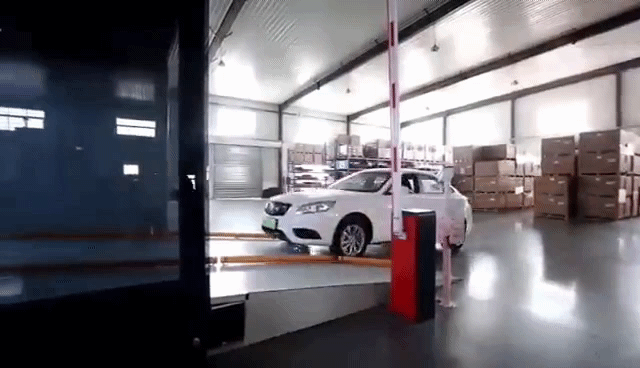![An electric vehicle with a battery replacement station. [사진 SK이노베이션]](https://i0.wp.com/pds.joins.com/news/component/htmlphoto_mmdata/202101/21/3535a541-60fb-46c7-8f82-8fca8255abb4.gif?w=560&ssl=1)
An electric vehicle with a battery replacement station. [사진 SK이노베이션]
SK Innovation, the fifth largest company in the global electric vehicle battery market, has decided to challenge the replaceable battery business. It is viewed as a market that will compensate for the shortcomings of the built-in electric vehicle battery, which takes about an hour or so even after rapid charging.
Acquired 13% stake in a battery exchange company in China
SK Innovation announced on the 21st that it has bought a 13% stake in’Blue Park Smart Energy’ (BPSE), a Chinese battery rental and replacement company. The promise between the two companies is that the investment amount will not be disclosed.
Replaceable in 3 minutes
BPSE operates a battery replacement station in Beijing. Just like fueling at a gas station, an electric vehicle driver stops here and replaces it with a pre-charged battery. Since this can be done in 3 minutes, SK believes that it can reduce the inconvenience of electric vehicle users. An SK official said, “We believe that vehicles that are difficult to charge for a long time due to long driving times such as buses and taxis will be our main customers.”
The industry also predicts that drivers who are worried about the risk of fire will become customers in the battery-replaceable electric vehicle market. Battery technology is key to increasing charging intervals and reducing charging times. However, there are consumers who are concerned that the increased capacity and function of the battery for this purpose may lead to fire.
![Electric car Tesla Model Y displayed in Shanghai, China. [신화=연합뉴스]](https://i0.wp.com/pds.joins.com/news/component/htmlphoto_mmdata/202101/21/ef786a13-dc67-42fa-bf3a-71ac22c3d1d4.jpg?w=560&ssl=1)
Electric car Tesla Model Y on display in Shanghai, China. [신화=연합뉴스]
The idea of a replaceable electric vehicle battery existed 5-6 years ago. The idea was a business idea from Israel that users returned batteries that had been discharged to the station and replaced them with pre-charged batteries. However, since the battery’s remaining performance was different, it was not successful due to low customer satisfaction. Woo-jin Choi, a professor at Soongsil University (electrical engineering), explained, “The reason why the business model has evolved in a way that one company owns and manages multiple batteries and lends them to consumers.”
Compete with rechargeables that improve performance
The question is whether the replacement business can survive the competition with rechargeable electric vehicles because battery technology advances day by day.
Professor Pil-soo Kim (automobile) at Daelim University predicted, “Because electric vehicle batteries are heavy and large, we need to have some degree of automation facilities in order to carry out the replacement business.” Professor Kim said, “However, there is an opinion that replacement electric vehicles may be suitable in the taxi and truck market where vehicles of the same model are widely distributed.”
Professor Woo-jin Choi said, “As the battery type changes with the release of new mobile phones, when a new car is released, a new battery that fits its structure will be required.” I said. He analyzed that “the key is whether there will be a replacement service that can receive consumer choices in response to increasingly shorter charging times and ever increasing battery capacity technology.”
Jeong Kyung-yoon, head of the Korea Institute of Science and Technology (KIST) Energy Storage Research Division, said, “It will be important to consumers how to reconcile the dispute over the responsibility of the driver or the rental company when there is a problem with the battery function.”
For this reason, the industry is trying to expand its business to service areas such as battery reuse and recycling as well as replacement. The BPSE invested by SK is also planning to do an energy storage device (ESS) business using batteries installed at the replacement station.
CEO Ji Dong-seop of SK Innovation’s battery business explained, “The battery reuse and recycling business is also a way to practice the management philosophy of ESG (using non-financial factors such as the environment, society, and governance as a management basis).”
Reporter Sunwook Choi [email protected]
